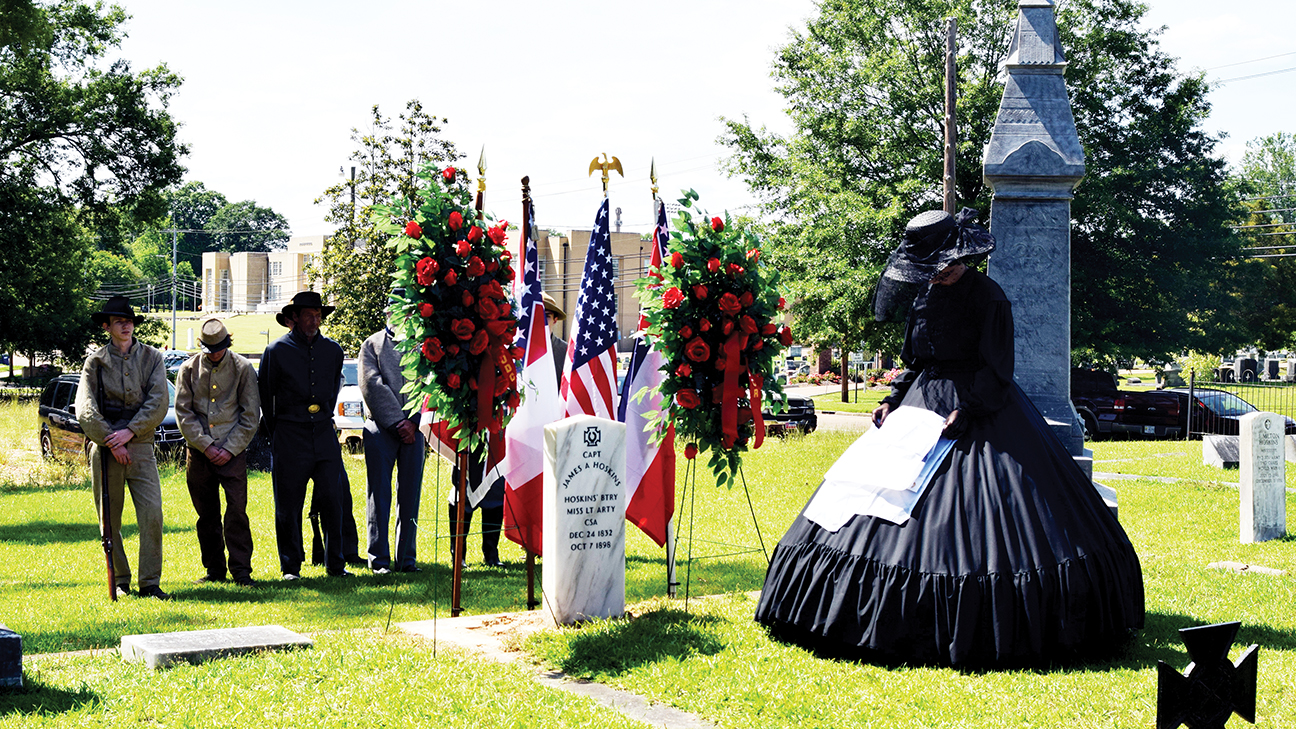Preparing your estate
Published 8:00 am Friday, March 13, 2015

DAILY LEADER / JULIA V. PENDLEY / Jim Heard presents information on living wills during the Friends of the Library’s first Lunch and Learn session.
Community members learned about alternate routes for inheritance Thursday at the Lincoln County Public Library.
The event, hosted by the Friends of the Library, featured Jim Heard as he introduced the group to the possibility of using trusts to help avoid probate. Although by profession Heard was an attorney, he has been retired for 17 years and never practiced in Mississippi. He said the information should not be taken as legal advice, but it could be a starting point for the inheritance process. He advised the attendants that the process of trusts and writing wills should be done with the help of a lawyer.
Heard explained that there were three reasons why someone might not want to do a standard will: delay, expense and publicity. The problems arise in probate. When a will is filed after someone’s death, it goes into probate. In probate, anyone the deceased owes money to must make a claim within a certain time period, and money is collected from any that owe the deceased.
The first reason, delay, comes from the fact that an estate will not come out probate as long as unsettled claims are in play. Heard said the smaller the estate, the less likely it is to occur. However family disputes can hold cases in probate for years.
Heard recounted a story of a family in his hometown. The father died when Heard was a freshman in high school and the estate got tied up in probate. Over the years, the widow and her family were forced to move because they could not afford the upkeep on the family farm without the estate. The farm has since fallen into disrepair. Three years ago, Heard visited home, and the estate was still locked in probate several decades later.
The second reason was the expense involved. The first step after a loved one has died is going to the Chancery Clerk’s office to open probate. The fee to start the process is $148. On top of that, there are lawyers’ and appraisers’ fees as the will is executed. Often lawyer’s fees are based on the estate, and they can receive 10 or even 20 percent of the total estate.
Also people may file claims against the estate for various reasons. Sometimes with estates worth millions of dollars, people will fill unsubstantiated claims hoping for a settlement out of court.
The final reason is publicity. When an estate goes through probate all the assets in the estate along with their value become part of the public record. Anyone then has access to this information.
Heard said the best way to avoid this is to transfer property before your death. He said with personal property, people can begin distributing their family heirlooms to family members as they are able.
The other option is to establish an inter vivos trust, also known as a living trust. With this a person is able to shift the property into the trust and become the trustee of the property. Whoever they would like to receive the property becomes the beneficiary. Filing a quick claim along with the trust allows it to switch hands as soon as the trustee dies.
At the time in which the trustee dies, either the beneficiary or another designated person becomes the trustee. By setting up the trust, a person is able to avoid probate all together. Because the property belongs to the trust rather than the actual individual, the transfer has already been made.
Heard said that this is also a possibility in terms of people who may have special needs child. The parents can set up the trust and designate a trustee. The trust would set out standards that would provide for the child as needed.
Heard said in a will, the individual can then list out the trusts they set up along with where they were filed for a smooth transition.
Heard added that the most important thing is to make sure some kind of planning is done. Otherwise the government determines what family members get.
Heard stressed that individuals need to consult their lawyer because every situation is unique.
“It may turn out that in your particular case, it is a bad idea,” he said.
After the event Nancy Hanks-Meyer, FOL member, said she did not expect to learn as much as she did.
“A lot of us came in thinking we had our act together, but we learned we were wrong,” she said.
Hanks-Meyer said this is exactly what she hopes will continue to happen at the Lunch and Learn meetings. While some of it may be important, weightier issues, such as Heard’s presentation, others may be associated with hobbies.
“It’s to help become more of a community,” she said. “We have to work to bring the community back.”
Next month’s session will focus on e-books. Hanks-Meyer said she is happy to take suggestions for future sessions. She can be reached at modestyann@aol.com.





